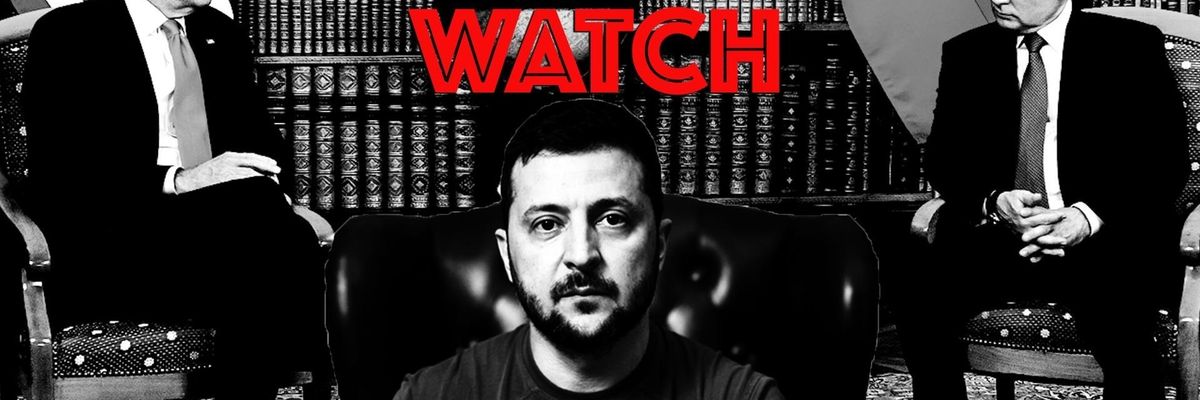Europe’s top diplomats made history this week when they made a surprise trip to Kyiv for a meeting aimed at projecting a unified front in support of Ukraine’s war with Russia and bid to join the European Union.
“It is the first time that we met in a candidate country,” said Josep Borrell, the bloc’s top foreign policy official. “And unfortunately, it was also the first time that the foreign ministers of the European Union met in a country at war.”
“The EU remains united in its support to Ukraine,” Borrell continued. “I don’t see any member state folding on their engagement.”
Shortly after the summit, which included 23 of the EU’s 27 foreign ministers, Ukraine got another piece of good news when reports emerged that Kyiv could start official accession talks by the end of this year.
But, far away from the spotlight, a number of obstacles remain before Ukraine joins the powerful bloc. The first challenge is to meet the EU’s standards for democracy and good governance. As of August, Ukraine had only met two out of seven legal benchmarks, and it remains unclear how Kyiv will make progress on the remaining five amid a brutal, all-out war with Russia.
If Ukraine manages to surpass that hurdle, it will face the arduous task of convincing each and every member of the consensus-driven bloc that Kyiv should become a member.
Slovakia will have little appetite for making concessions to Ukraine given the results of the country’s recent elections, in which a leftist party opposed to arming Kyiv returned to power. Robert Fico, Slovakia’s likely new prime minister, said last month that it is “illusory to deal with” the question of Ukraine joining the EU amid a “sharp military conflict.”
There is, however, one factor working in Ukraine’s favor: Fico had a history of pragmatism during previous stints as prime minister, leaving open the possibility that he could change his tack on Kyiv for the right price.
Reports also indicate that Hungary, led by firebrand Prime Minister Viktor Orban, will not back Ukraine’s bid for free. In fact, EU officials are now considering unlocking as much as $13 billion in handouts that the bloc has withheld from Budapest due to concerns that Orban has reduced the independence of the country’s courts. In return, EU officials hope Hungary will approve aid to Ukraine and back the effort to open accession talks.
The final obstacle will be convincing the EU’s smaller states to accept a fundamental shift in the economic balance of the bloc. Ukraine would get nearly $200 billion from the bloc over seven years, forcing some member states to go from net receivers of EU largesse to net payers, according to an EU report leaked to the Financial Times. Kyiv would also become the largest recipient of agricultural subsidies, dropping payments for all other states by about 20 percent.
Despite the long odds, Ukrainian President Volodymyr Zelensky remains determined to help his country achieve EU membership. “Our key integration goal is to hammer out a decision to start membership negotiations this year,” Zelensky said. “Today, I heard once again at the meetings and negotiations that this is absolutely possible.”
In other diplomatic news related to the war in Ukraine:
— The end of Rep. Kevin McCarthy’s (R-Calif.) term as speaker of the House could mean the end of U.S. aid to Ukraine, according to Blaise Malley of RS. As Malley notes, all of McCarthy’s likely successors have been critical of American aid, and options for bypassing the speaker and forcing a vote on more Ukraine funding would require some Republicans to either break with leadership or do some clever horse trading to convince Kyiv’s skeptics. The news comes as public support for aid continues to fall, according to a new Reuters/ Ipsos poll, which found that only 41% of Americans want to continue arming Ukraine, while 35% were opposed and the rest were unsure.
— NATO’s top military official warned that “the bottom of the barrel is now visible” when it comes to Western stocks for arming Ukraine, according to CNN. “We give away weapons systems to Ukraine, which is great, and ammunition, but not from full warehouses,” said Adm. Rob Bauer.
— Zelensky met with European leaders in Granada, Spain, on Thursday in an effort to bolster support for Ukraine, according to Reuters. “Our joint goal is to ensure the security and stability of our common European home,” he said on X, formerly known as Twitter. “We are working together with partners on enhancing the European security architecture, particularly regional security. Ukraine has substantial proposals in this regard.”
— Mexican President Andres Manuel Lopez Obrador said Monday that U.S. aid for Ukraine is “irrational,” marking a shift in the controversial leader’s rhetoric about the war, according to Reuters. “I was just looking at how now they're not authorizing aid for the war in Ukraine," AMLO said. "But how much have they destined for the Ukraine war? $30 to $50 billion for the war, which is the most irrational thing you can have. And damaging.” AMLO has previously called for peace talks to end the conflict.
U.S. State Department news:
In a Wednesday press conference, State Department spokesperson Vedant Patel called on Congress to pass new aid for Ukraine. “We cannot under any circumstances allow America’s support for Ukraine to be interrupted,” Patel said. “A lapse in support for even a short period of time could make all the difference in the battlefield.”- Will Ukraine's effort go bankrupt gradually...then suddenly? ›
- Macron knows that Europe needs to stand on its own two feet ›
















